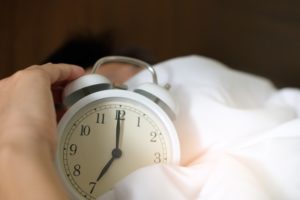How to treat narcolepsy with hypnosis?

What is narcolepsy?
Narcolepsy is a neurological disorder that affects the brain’s ability to regulate sleep-wake cycles. It is characterised by excessive daytime sleepiness, sudden and uncontrollable episodes of falling asleep during the day, and disruptions in the normal sleep patterns.
What causes narcolepsy?
- Genetic Factors :There is evidence to suggest that narcolepsy might have a genetic component. Certain genes have been identified that are associated with an increased risk of developing narcolepsy. However, having these genes doesn’t guarantee that an individual will develop the disorder, and not everyone with these genes will develop narcolepsy.
- Autoimmune Dysfunction: One of the most prominent theories about narcolepsy’s cause involves an autoimmune response. In people with narcolepsy, there appears to be a loss of specialised brain cells called orexin-producing neurons (also known as hypocretin-producing neurons). This autoimmune process may be triggered by environmental factors or infections.
- Environmental Triggers: Certain environmental factors, such as infections, may trigger or contribute to the autoimmune response that leads to narcolepsy.
What are the symptoms of narcolepsy ?
- Excessive Daytime Sleepiness (EDS): Individuals with narcolepsy feel an overwhelming and persistent need to sleep during the daytime, regardless of the amount of sleep they get at night. This can lead to difficulty staying awake and alert during normal waking hours.
- Cataplexy: Cataplexy is a sudden loss of muscle tone and control that is often triggered by strong emotions such as laughter, anger, or surprise. During a cataplectic episode, a person’s muscles can become weak or limp, leading to temporary paralysis.
- Sleep Paralysis: Sleep paralysis occurs when a person is unable to move or speak while falling asleep or waking up. It can be accompanied by vivid hallucinations and a sense of pressure on the chest, leading to feelings of fear or panic.
- Hypnagogic and Hypnopompic Hallucinations: These hallucinations are vivid and often frightening sensory experiences that occur when a person is falling asleep (hypnagogic) or waking up (hypnopompic). They can involve visual, auditory, or tactile sensations.
- Disrupted Night-time Sleep: People with narcolepsy may experience frequent awakenings during the night and have difficulty maintaining a consistent sleep pattern.
Treating narcolepsy with hypnosis
The deep and natural relaxation state induced when being in hypnosis might help to reset your sleep patterns and provide rapid recovery from tiredness.
We have found few research showing the effectiveness of hypnotherapy to reduce narcolepsy symptoms; Jerome M. Schneck’s article Hypnotherapy for narcolepsy.
If you or someone you know has narcolepsy, it’s important to work with medical professionals who are experienced in sleep disorders. While hypnosis may have potential benefits for certain sleep conditions, there is not a large range of scientific research that backs up its usage for narcolepsy.


